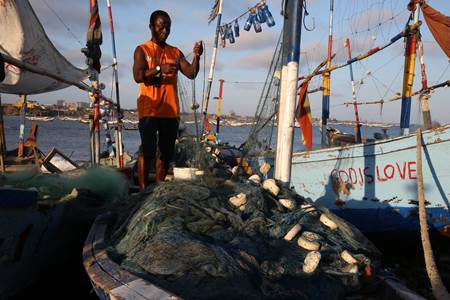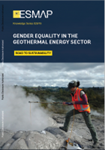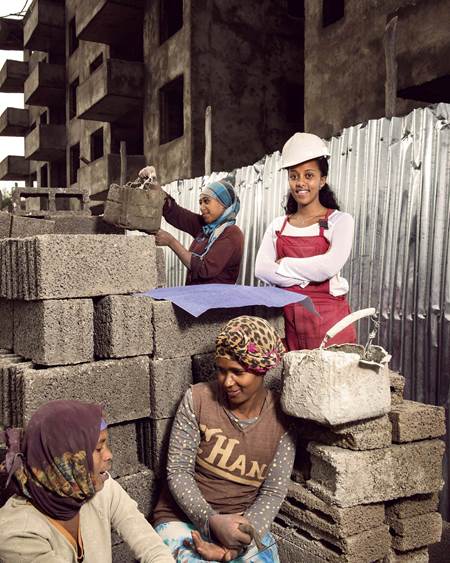World Bank
The World Bank Group (WBG), which is one of Iceland’s four key multilateral development partners, is one of the world’s largest sources of funding and knowledge for developing countries. Its role is to promote sustainable economic and social development in developing countries in line with its twin goals of ending extreme poverty and promoting shared prosperity. The WBG collaborates with governments of partner countries through providing financing, policy advice, and technical assistance.
Iceland actively participates in the Bank’s work through the Nordic-Baltic Constituency (NBC) which represents the Nordic and Baltic countries in the Board of Governors.
International Development Association (IDA)

A large part of Iceland’s contributions to the World Bank Group (WBG) goes to the International Development Association (IDA). The Icelandic government also provides support to the poorest countries through IDA’s Multilateral Debt Relief Initiative. Negotiations for the IDA20 replenishment were concluded in the end of 2021, with donor countries agreeing on a historic 93 billion USD financing package to assist the world’s poorest countries. Iceland’s contribution for the period of 2023-2025 is 1,8 billion ISK.
Bilateral Cooperation
In its bilateral collaboration with the World Bank, Iceland places particular emphasis on the blue economy, gender equality, human rights and renewable energy.
Human Rights and Development

(Sarah Farhat / World Bank).
Human rights are one of Iceland’s key focus areas in its bilateral cooperation with the World Bank. Iceland has since 2006 provided financial contributions to the Bank’s human rights fund which is the only knowledge and learning initiative that specifically supports building the capacity of the Bank to support human rights considerations in its programming and projects.
The Human Rights, Inclusion and Empowerment Umbrella Trust Fund (HRIE) (formerly known as the Nordic Trust Fund) was established in 2020. The role of the HRIE is to increase and strengthen knowledge, learning and application of human rights principles in the WBG’s work, including in fragile and conflict affected states. In 2021-2023, Iceland has also supported HRIE with a seconded expert.
The Blue Economy

Village in Accra, Ghana (Dominic Chavez/World Bank).
Iceland places emphasis on the blue economy in its international development cooperation, including healthy oceans and sustainable use of marine resources. This is reflected in Iceland’s cooperation with the World Bank where the cooperation consists of support to the ProBlue trust fund, financing of a fisheries specialist position in the Bank and access to Icelandic fisheries specialists through the Icelandic Technical Assistance Program. Marine pollution is high on the agenda and gets special attention in the ProBlue trust fund, which aligns well with Iceland’s focus on the overall blue economy.
Renewable Energy
Iceland and the World Bank work in close cooperation in supporting geothermal development. Iceland has contributed funds to ESMAP, a multi-donor trust fund administered by the Bank, since 2005 and funded a position of a geothermal specialist in the Bank since 2009. ESMAP has proved an important platform to increase knowledge in geothermal projects and investments in the area of geothermal development in developing countries.
Iceland also provides short term techincal assistance to the Bank in the field of geothermal energy and hydropower

Iceland emphasizes gender equality in all its development cooperation and has supported ESMAP to bring attention to the importance of promoting gender equality in the geothermal sector.
Gender Equality

Iceland and the Nordic and Baltic countries are strong and consistent supporters of promoting gender equality within the WBG’s operations, policies and strategies and have for a long time pushed the Bank in this area. Iceland has supported and contributed funds to the UFGE (Umbrella Facility for Gender Equality) since it was launched in 2012. The UFGE is dedicated to strengthening awareness, knowledge, and capacity building to help staff and policy makers close gender gaps. Its efforts have contributed to increased integration of gender perspectives in operations of the whole of the World Bank Group. The UFGE supports work across all four pillars of the WBG’s Gender Strategy: closing first generation gaps in health and education, creating more and better jobs, removing barriers to women’s ownership and control over physical and financial assets, and enhancing women’s voice and agency and engaging men and boys.
Useful links
World Bank Funds
World Bank Funds that Iceland supports in particular:
